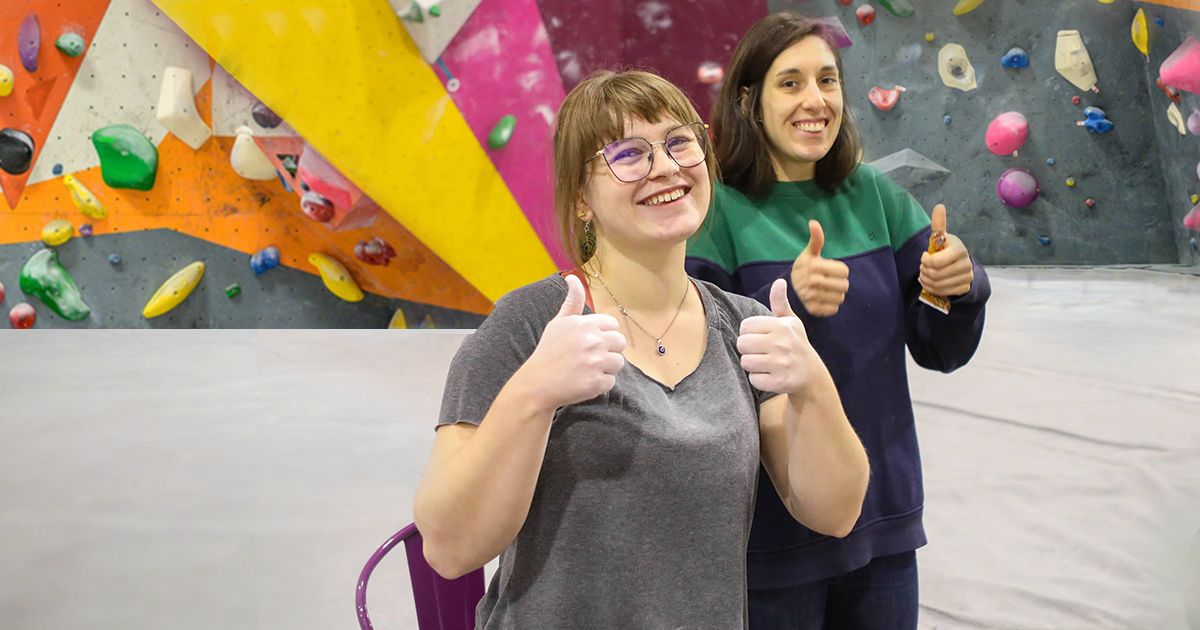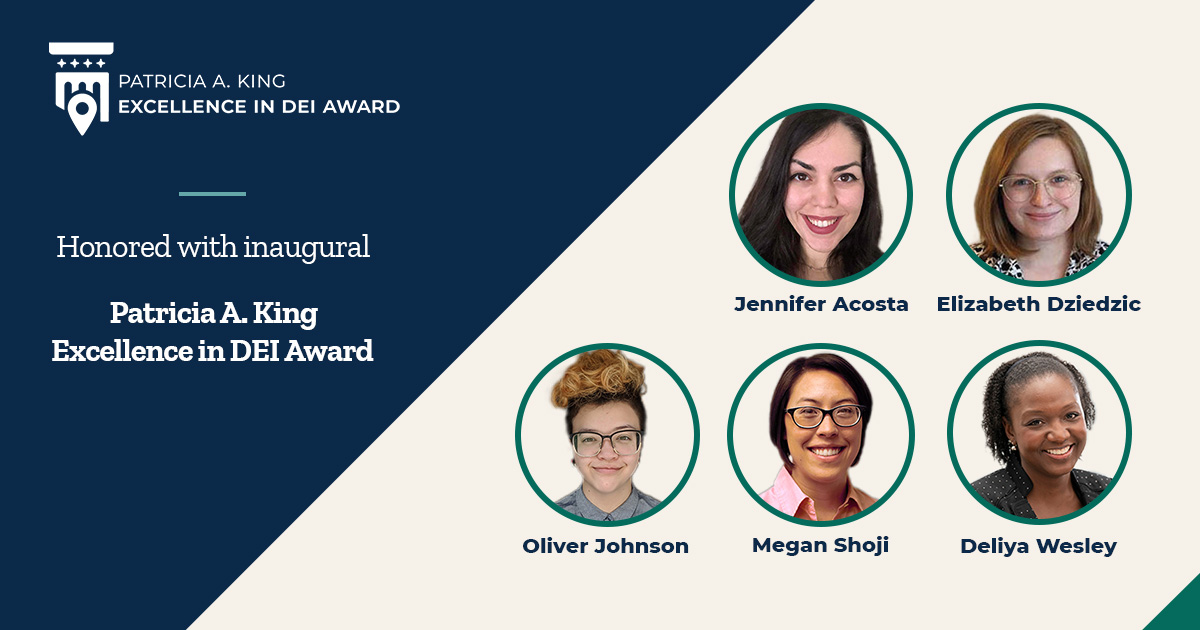One thing I value about my role at Mathematica is that I get to explore a range of research interests and work on holistic approaches to improving public well-being. I always knew I wanted to pursue a career in social policy. What I didn’t understand when I started my undergraduate journey, however, was just how broad a topic social policy really is. Volunteering in my college community helped me see the bigger picture and how social issues are interconnected.
One of my first volunteer jobs was at a sexual assault crisis intervention line. I helped survivors in moments of crisis, but also recognized that a broader resource network was needed to make sure that they were properly cared for and supported. A valuable takeaway from my volunteer efforts is that we need to meet people where they are. We need to provide them with what they ask for and need, but we can’t push them beyond that.
As a non-binary bisexual person, I am eager to find ways to give back to my community and am most fulfilled when working on issues that impact LGBTQIA+ individuals. One of my favorite projects at Mathematica was researching how to collect sexual orientation and gender identity information for individuals in the foster care system. Another focused on promising and emerging practices to help prevent LGBTQIA+ youth from needing to utilize health and human services programs.
Many of my projects involve interviewing people with lived experience in the research topic. Working to improve public well-being means infusing kindness, compassion, and consideration into all of the steps we take to get there. That means when we ask queer youth to share personal and vulnerable things with us—things that are hard to talk about, and hard to process—we need to do everything we can to ensure they walk away from that interview in a healthy way and feeling respected. We don’t want to cause harm to or re-traumatize anyone.
Interviewing people with lived experience in a research topic also requires ensuring that people have agency. We must emphasize that they, as the interviewee, have the ability to stop the interview at any time. Yes—we have questions that we’re hoping they’ll answer, but we can never push people to provide information beyond what they’re willing to give us. Letting participants know that they can share as little or as much as they’re comfortable with and emphasizing anonymity shifts the interaction and the power dynamic, giving interviewees a safe space in which to share.
The interview process is another way by which I came to understand that so many social issues are interconnected. When we ask the right questions, we can identify intersections (for example, between issues such as housing and child well-being) and work toward holistic solutions. This process is a vital part of the research we do to make people’s lives better.
Beth is a recipient of the 2023 Patricia A. King Excellence in DEI Award. Named for longtime Mathematica board member Patricia (Pat) King, the award recognizes outstanding staff leadership and demonstrated commitment to advancing Mathematica’s vision for creating an equitable and just world and building an equitable and inclusive workplace.



